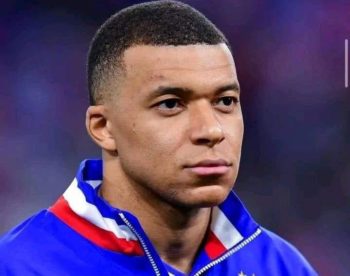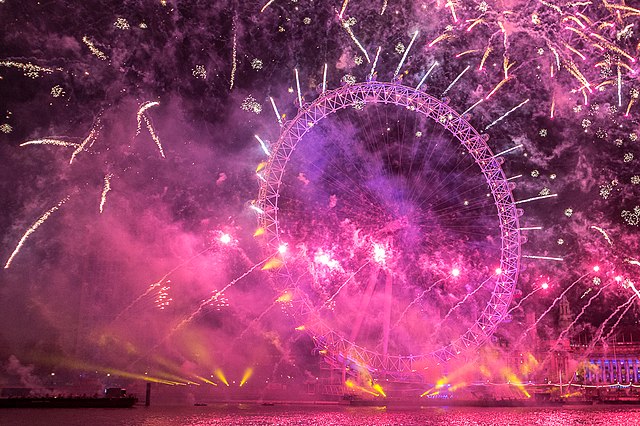The UEFA European Championship, commonly known as the Euros, stands as one of the premier football tournaments worldwide. This year, Euro 2024 in Germany is poised to highlight the diverse talents of more than 42 players of African descent. This remarkable representation underscores football’s unique ability to bridge cultures and unite individuals from various backgrounds, reflecting the sport’s global reach and unity.
France’s Melting Pot of Talent
France’s squad for Euro 2024 epitomizes the nation’s rich tapestry of multiculturalism, featuring 14 players of African descent. The team’s composition is a testament to France’s diverse talent pool and its ability to integrate players from various backgrounds seamlessly.
Brice Samba, a formidable goalkeeper originally from DR Congo, has made significant strides in his career, showcasing his agility and reflexes. Defenders Ferland Mendy, with roots in Senegal and Guinea-Bissau, along with Dayot Upamecano and Jules Koundé, from Guinea-Bissau and Benin respectively, provide a strong defensive backbone. Their presence is vital for France’s defensive solidity. The midfield sees contributions from William Saliba and Ibrahima Konaté, whose Cameroonian and Malian heritage enrich their gameplay. Eduardo Celmi Camavinga and Aurélien Djani Tchouameni, with roots in DR Congo and Cameroon, bring youthful dynamism to the team, while the experienced N’Golo Kanté and Youssouf Fofana, both of Malian descent, offer stability and resilience.
France’s attack is spearheaded by Kylian Mbappé, whose lineage traces back to Cameroon and Algeria, and Ousmane Dembélé, connected to Mauritania and Mali. Their speed and technical prowess are complemented by Randal Kolo Muani and Bradley Barcola, who add versatility and creativity to the offensive lineup. This diverse roster not only highlights the individual talents but also the collective strength of a multicultural team.
Belgium’s Diverse Arsenal
Belgium’s squad at Euro 2024 features nine players of African descent, each bringing unique strengths and qualities to the team. This diversity has become a cornerstone of Belgium’s recent footballing success, demonstrating the importance of cultural integration in sports.
Romelu Lukaku, with Congolese roots, is a powerhouse in Belgium’s attack, known for his physicality and goal-scoring ability. Jérémy Doku, of Ghanaian heritage, adds speed and agility, making him a constant threat to opposing defenses. The offensive prowess is further enhanced by Ikoma-Loïs Openda, with Moroccan and DR Congo heritage, and Johan Bakayoko, who boasts ties to Rwanda and Ireland. These players bring flair and unpredictability to Belgium’s forward line.
Midfielders Dodi Lukebakio, Amadou Onana, and Orel Mangala, all of DR Congolese descent, along with Youri Tielemans, provide a robust and creative presence in the midfield. Their ability to control the tempo of the game and create scoring opportunities is crucial for Belgium’s strategy. Aster Vranckx, also of Congolese descent, completes this diverse lineup, showcasing the depth of talent that Belgium can call upon. This blend of skills and backgrounds is instrumental in Belgium’s quest for glory at Euro 2024.
Switzerland’s Multicultural Strength
Switzerland’s eight players of African descent reflect the country’s commitment to multiculturalism and inclusivity. This diverse representation is a microcosm of Swiss society, which values the contributions of individuals from various backgrounds.
Defenders Yvon Mvogo, with roots in Cameroon, and Manuel Akanji, of Nigerian descent, anchor Switzerland’s defense with their solid performances and tactical awareness. In the midfield, Denis Zakaria, whose heritage spans DR Congo and South Sudan, brings strength and versatility. He is complemented by Breel Embolo and Noah Okafor, both of Cameroonian and Nigerian descent, respectively, who add dynamism and creativity to Switzerland’s play.
The offensive capabilities of Kwadwo Duah, Dan Ndoye, and Mohamed Amdouni, connected to Ghana, Senegal, and Tunisia, respectively, showcase a blend of skill and heritage. Their ability to break down defenses and score goals is vital for Switzerland’s ambitions in the tournament. This multicultural lineup not only enhances Switzerland’s footballing credentials but also reflects the nation’s broader ethos of diversity and unity.
The Broader Implications of Diversity in Football at Euro 2024
The representation of players of African descent at Euro 2024 goes beyond mere statistics; it signifies the transformative power of football in bridging cultural divides and fostering unity. These players, with their varied backgrounds and unique stories, highlight the global nature of the sport and its ability to bring people together.
This year’s Euros will not only be a display of top-tier football talent but also a celebration of diversity and multiculturalism. As these players take to the field, they embody the dreams and aspirations of countless individuals worldwide, showcasing that football is more than just a game—it’s a unifying force that transcends borders and cultures. The presence of these stars of African descent serves as a powerful reminder of the sport’s inclusivity and its role in promoting global harmony.
Euro 2024: England’s Diverse and Dynamic Squad
England’s Euro 2024 list includes six players of African descent, each making significant contributions to the team’s dynamics. Bukayo Saka, with Nigerian roots, stands out as a versatile winger known for his agility, pace, and creativity on the field. His exceptional performances for both club and country have made him a fan favorite and a crucial part of England’s attacking lineup.
In midfield, Kobbie Mainoo, of Ghanaian descent, and Eberechi Eze, whose roots trace back to Nigeria, offer creativity and flair. Mainoo’s vision and passing ability complement Eze’s dribbling skills and goal-scoring potential, providing England with a robust and dynamic midfield presence. Defensively, Marc Guéhi (Côte d’Ivoire) and Ezri Konsa (DR Congo) provide solid defensive options, while Joe Gomez, of Gambian descent, ensures strength and reliability at the back. Together, these players exemplify the diverse talent pool contributing to England’s aspirations at Euro 2024.
Germany’s Evolving Football Landscape
Germany’s squad for Euro 2024 features five players of African descent, reflecting the country’s evolving football landscape. Antonio Rüdiger, of Sierra Leonean descent, is a defensive stalwart whose physical presence and leadership qualities have been instrumental in both domestic and international competitions. Alongside him, Jamal Musiala, with Nigerian heritage, brings youthful energy and creativity to the midfield, quickly becoming one of Germany’s most promising talents.
Completing Germany’s lineup are Jonathan Tah (Côte d’Ivoire), Benjamin Henrichs (Ghana), and Leroy Sané (Senegal). Each of these players brings their unique skills and heritage to the team. Tah’s defensive prowess, Henrichs’ versatility, and Sané’s explosive pace and dribbling ability add depth and diversity to Germany’s squad, showcasing the multicultural fabric of modern German football. These players not only enhance their team’s performance but also represent the broader global influence that African heritage has on European football.
As Euro 2024 approaches, the spotlight will be on these 42 stars of African descent, whose participation underscores the global reach of football and its power to unite people from diverse backgrounds. Their performances will undoubtedly inspire millions and highlight the continued importance of diversity and inclusion in the beautiful game.
The Broader Implications of Diversity in Football
The representation of players of African descent at Euro 2024 goes beyond mere statistics; it signifies the transformative power of football in bridging cultural divides and fostering unity. These players, with their varied backgrounds and unique stories, highlight the global nature of the sport and its ability to bring people together.
This year’s Euros will not only be a display of top-tier football talent but also a celebration of diversity and multiculturalism. As these players take to the field, they embody the dreams and aspirations of countless individuals worldwide, showcasing that football is more than just a game—it’s a unifying force that transcends borders and cultures. The presence of these stars of African descent serves as a powerful reminder of the sport’s inclusivity and its role in promoting global harmony














